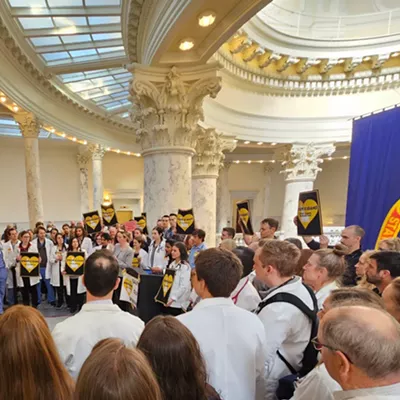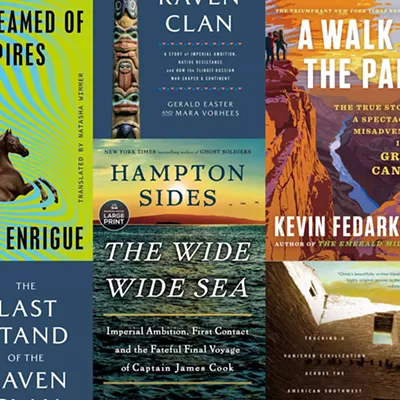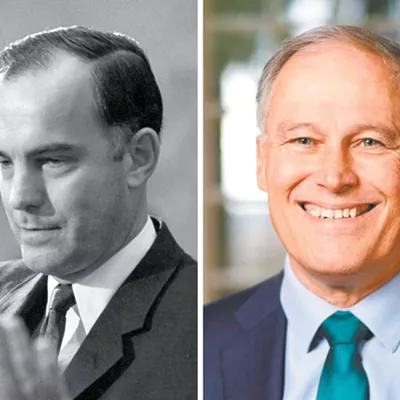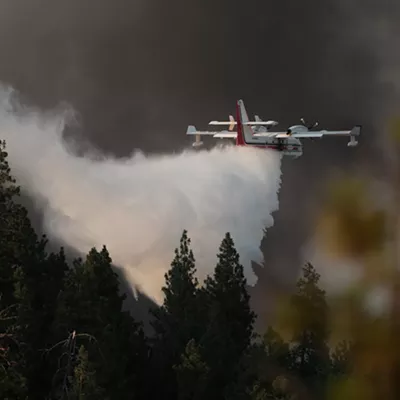Stan, who died in December, left his mark in the early 1960s as a legislative aide and later as chief-of-staff to U.S. Sen. Warren Magnuson. Not long after graduating from the UW law school, still firmly rooted in Eastern Washington, Stan wrote the landmark sections of the Civil Rights Act that prohibited businesses from discriminating against people on the basis of race or creed. As a teenager who was Jewish, Stan experienced discrimination. As a 23-year-old, he wrote, then helped steer through the Senate, language prohibiting separate toilets, lunch counters, hotels and all racial discrimination in commerce.
Merely years later, Stan’s interpretation of foreign policy and maritime law made it possible for the first Chinese commercial ship to arrive in the United States. His work opened business between the U.S. and the People’s Republic of China. The hundreds of millions of dollars’ worth of agricultural goods Eastern Washington exports to China is possible because of Stan Barer.
By the time I met him in 1983, when I was working for Republican Gov. John Spellman, Stan’s prominence in the maritime industry was such that Republican Spellman wanted anything related to maritime commerce run by Democrat Barer. There is a lesson there.
Years later, after I founded my own company, Stan encouraged me to run for a seat on the Seattle/King County port commission. Along with former Republican Gov. Dan Evans, he co-chaired that campaign. Here was a man who hosted the Clintons in his home, who hung out with John Kerry, the Democratic U.S. senator and presidential candidate, and who helped elevate the careers of young Washington state Democrats, who was also helping me, a Republican. There is a lesson in that for all of us. Stan, who was fiercely partisan, respected ideas and imagination more than ideological blindness, and he was open to working with people he sometimes disagreed with. He understood that it is in such labor that progress can be born. We can honor him by putting that lesson into practice.
While from different political parties, Stan and I agreed on more than we disagreed, but it was similar roots that I think bound our friendship. Stan grew up in Walla Walla, working as soon as he was old enough. After working his way through college, he worked in Washington, D.C. I was born just over the hill in Morton, grew up at the base of the Olympic Mountains and arrived in D.C. wearing a cowboy hat, where I worked my way through college. Because of our rural beginnings, we shared a commitment that every child, regardless of where they grow up, should have access to a quality education. Stan backed up his commitment by philanthropically funding multiple scholarships and education programs and by creating the UW’s Barer Institute for Law & Global Human Services.
About a decade before he died, Stan was diagnosed with pancreatic cancer. He was one of the very few who beat it, for a while. After his torturous treatment and recovery, no one would have blamed Stan if he’d spent his remaining time fishing, and he certainly did a lot of that. But there is a lesson in how he also spent his last years. He took on a challenge bigger than any one of us and was undaunted by the odds. Understanding there was little prospect of meaningful progress on climate change without China’s participation, he founded the U.S.-China Clean Energy Forum, and sought ways China and the U.S. could collaboratively reverse CO2 emissions. He understood imposed restrictions were likely to be less successful than mutually undertaken initiatives. There is a lesson there as well.
Stan’s accomplishments and priorities should shape how we move forward on issues confronting us. In a time of “cancel culture” and overt, sometimes violent bigotry, we need to recommit ourselves to ensuring everyone is treated equally and with dignity. At a time when kids in affluent school districts are achieving language and math scores in some cases double those of kids in rural and more racially diverse Washington state schools, we need to recommit ourselves to providing every child with a quality education. In an era when reducing CO2 emissions is essential, we must appreciate there may be multiple ways to secure the same goal, and be open to cooperative, alternative approaches. At a moment when our relationship with China is strained, we should look for opportunities to build connections.
And critically, let’s always be willing to knock back a whiskey or two with someone from a different political party.
Bill Bryant, who served on the Seattle Port Commission from 2008-16, ran against Jay Inslee as the Republican nominee in the 2016 governor's race. He is chairman of the company BCI, is a founding board member of the Nisqually River Foundation, and was appointed by Gov. Chris Gregoire to serve on the Puget Sound Partnership's Eco-Systems Board. He lives in Winthrop, Washington.
























